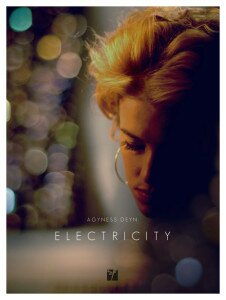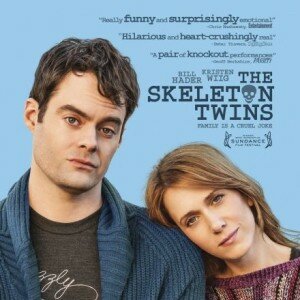 What’s your reaction to the phrase ‘model turned actress’? We’re guessing a groan, maybe some gratuitous eyerolling – generally expressions of derision. So how will Agyness Deyn, the latest high profile model turned actress, fare against those expectations?
What’s your reaction to the phrase ‘model turned actress’? We’re guessing a groan, maybe some gratuitous eyerolling – generally expressions of derision. So how will Agyness Deyn, the latest high profile model turned actress, fare against those expectations?
Agyness plays Lancashire lass Lilly, a twenty something epileptic. Lilly takes pills every day but they fail to control her fits. We see her in sequined dress and heavy make up on her way to a night out, but she never makes it to her destination, collapsing in convulsions on the pavement to the consternation of bypassers, awaking in hospital covered in a fresh assortment of painful bruises.
But the fits aren’t Lilly’s only concern. Her younger brother, Mikey, has gone missing in London. Worried for his wellbeing, Lilly decides to travel down and look for him (in London! It’s quite big…). Arriving in King’s Cross, a striking, gawky figure in rainbow colours, she may as well have ‘naive’ tattoeed across her forehead. Sure enough, within 24 hours she’s duped and robbed by a homeless woman she’d initially taken pity on. Luckily, not everyone is as merciless. Picked off the pavement after yet another seizure by young professional Mel (Leonora Crichlow), she recognises Lilly’s vulnerability underneath her feisty exterior and insists Lilly stay with her. The two soon become friends and Lilly’s search for Mikey continues.
So, let’s get straight to the point, is Agyness any good? Yes, she’s stunningly good. You didn’t expect that, did you? Watching her, she simply IS Lilly, there is no hint of a ‘performance’, she fully inhabits a wildly complex character with complete naturalism. And that’s just as well because the entire film hangs on her (thankfully broad) shoulders. Part family drama, part detective thriller, part insight into the horror of living with such a debilitating condition, Electricity is an emotionally engaging, thoughtful film that is a pleasure to watch. Hats off, Agyness, The Sloth looks forward to seeing what you do next.
UK release 12 December




 Is there a finer actress working today than Marion Cotillard? Most probably not. Because in the hands of anyone else, Deux Jours, Une Nuit could be mind-numbingly dull. Thanks to her, it’s captivating.
Is there a finer actress working today than Marion Cotillard? Most probably not. Because in the hands of anyone else, Deux Jours, Une Nuit could be mind-numbingly dull. Thanks to her, it’s captivating.
 Now that The Cumberbatch is bigger than God, the world is in need of a New Favourite Actor. May The Sloth suggest the superb Ben Whishaw fill these boots? From nekked and mute in Perfume: The Story Of A Murderer, to working Q’s speccy glasses in Skyfall, he is always sublime, which happily continues in Lilting.
Now that The Cumberbatch is bigger than God, the world is in need of a New Favourite Actor. May The Sloth suggest the superb Ben Whishaw fill these boots? From nekked and mute in Perfume: The Story Of A Murderer, to working Q’s speccy glasses in Skyfall, he is always sublime, which happily continues in Lilting. It’s a shame that the name Michael Caine can hardly be mentioned without eliciting Italian Job / Mockerney impersonations from all and sundry. For when the urge takes him, he really is a terrific actor, which we were reminded of when watching Mr Morgan’s Last Love.
It’s a shame that the name Michael Caine can hardly be mentioned without eliciting Italian Job / Mockerney impersonations from all and sundry. For when the urge takes him, he really is a terrific actor, which we were reminded of when watching Mr Morgan’s Last Love.




